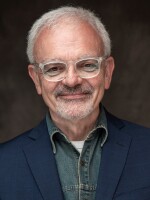RENEE MONTAGNE, host:
Good morning. This is MORNING EDITION from NPR News. I'm Renee Montagne.
STEVE INSKEEP, host:
And I'm Steve Inskeep.
President Bush is preparing to meet with Asian and Pacific leaders, so it's natural that much of the talk is about the future. In particular, he'll meet this week with the leader of China, which is often seen a country of the future. It's part of a summit in Australia, and we'll have more in a moment. But his president cannot go to Australia without some discussion of the present - in particular, the war in Iraq.
Australia's leader supports the war, but it's not clear how many people will support him in incoming election. NPR's Don Gonyea reports from Sydney.
DON GONYEA: With President Bush's unannounced visit to Anbar province two days ago, the Iraq war is so far dominating this strip to Sydney. The APEC summit begins later in the week, but the president and Prime Minister John Howard met yesterday. Howard's backing of the Bush administration on Iraq has him trailing badly in latest polls. Elections are expected sometime in the next few months. Howard sounded very much like Mr. Bush as he opened a joint news conference with the president.
Prime Minister JOHN HOWARD (Australia): I made it very clear to the president that our commitment to Iraq remains - Australian forces will remain at their present levels in Iraq, not based on any calendar, but based on conditions in the ground.
GONYEA: Australia currently has about 1,600 troops in Iraq. Yesterday, President Bush was asked to clarify remarks he made in Iraq this week in Anbar province. He told reporters that if the security situation continues to improve, then there could be fewer American forces in Iraq. But also on that trip, in a speech to troop stationed at the Al-Asad Air Base, he did not repeat that statement. That same day, administration officials also dismissed talk of out coming announcement on troop reductions.
In Sydney, the president was asked if he's trying to have it both ways. He answered that reductions are possible, but that no decision has been made, and that he's waiting for the assessment of General David Petraeus and Ambassador to Iraq Ryan Crocker.
President GEORGE BUSH: When I get back from this trip, after the Congress has been briefed from David Petraeus and Ryan Crocker, why don't we see what they say? And then I'll let you know what our position is and what our strategy is.
GONYEA: Another topic on the minds of Sydney residents this week came up at the news conference: how much of the city has been turned into a massive security zone with streets blocked off by police and barricades. Here's how one local journalist put it in a question to Mr. Bush.
Unidentified Man (Journalist): Mr. President, welcome to Sydney.
President BUSH: Thank you, sir.
Unidentified Man: I can assure you, it doesn't always look like this, with steel fences and concrete barricades and armed guards on the street. But I wonder if the…
President BUSH: I hope you feel safe. You feel inconvenienced, obviously.
GONYEA: The president said he apologize if he is the cause of the disruption. He offered assurances, though, that Sydney would soon get back to normal. The APEC summit itself is still to come, and President Bush's schedule before he returns to Washington Sunday includes a series of high-profile meeting with leaders from Japan, North Korea, Russia and China.
Don Gonyea, NPR News, in Sydney. Transcript provided by NPR, Copyright NPR.






